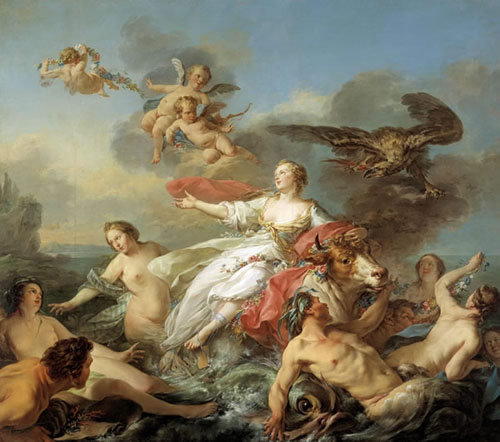
Classical mythology
Classical mythology, also known as Greco-Roman mythology or Greek and Roman mythology, is the collective body and study of myths from the ancient Greeks and ancient Romans. Mythology, along with philosophy and political thought, is one of the major survivals of classical antiquity throughout later Western culture.[1] The Greek word mythos refers to the spoken word or speech, but it also denotes a tale, story or narrative.[2]
As late as the Roman conquest of Greece during the last two centuries Before the Common Era and for centuries afterwards, the Romans, who already had gods of their own, adopted many mythic narratives directly from the Greeks while preserving their own Roman (Latin) names for the gods. As a result, the actions of many Roman and Greek deities became equivalent in storytelling and literature. For example, the Roman sky god Jupiter or Jove became equated with his Greek counterpart Zeus; the Roman fertility goddess Venus with the Greek goddess Aphrodite; and the Roman sea god Neptune with the Greek god Poseidon.
Latin remained the dominant language in Europe during the Middle Ages and Renaissance, largely due to the widespread influence of the Roman Empire. During this period, mythological names almost always appeared in their Latin form. However, in the 19th century, there was a shift towards the use of either the Greek or Roman names.[3] For example, "Zeus" and "Jupiter" both became widely used in that century as the name of the supreme god of the classical pantheon.